Things To Keep In Mind Before Buying Generator For Home
March 9, 2023



 Electronic,Home Appliances
Electronic,Home Appliances
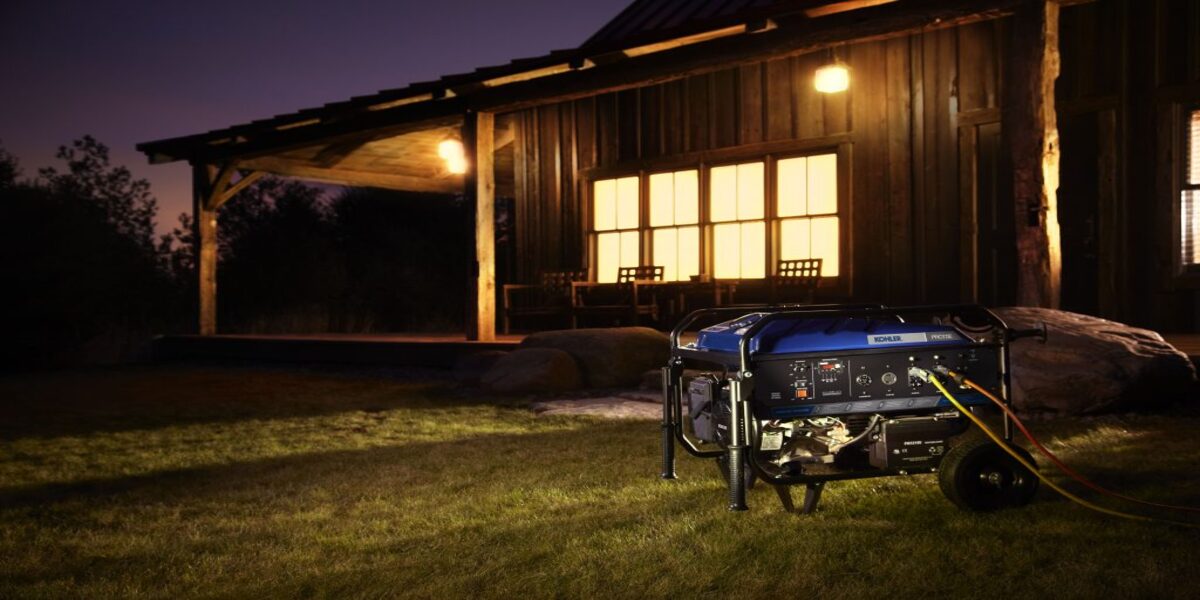
Purchasing your first generator can be intimidating. But don’t worry, we’ve got you covered with our list of the Top 10 Things to Consider When Buying a Home Generator. So, what should you know before purchasing a generator? So, a lot of things. Like? What size generator should I get? How do I figure out what size generator I need? Should I get a standby or portable generator? What precautions should be taken before purchasing a generator?
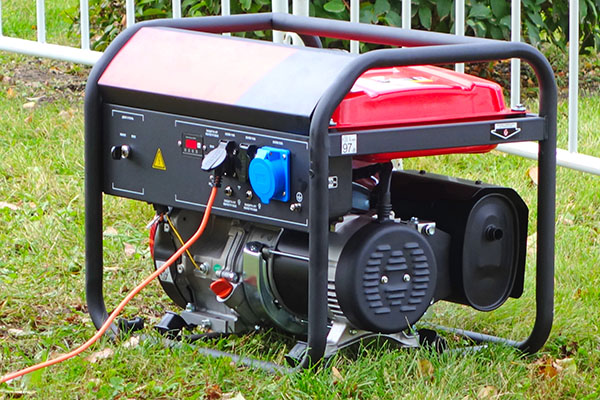
Considerations when purchasing a generator:
How large of a generator should I purchase?
This answer is determined by adding the total load expected at any given time of the electrical loads that you want to power at the same time, measured in watts. Begin by adding up all the loads you know you want to be able to run concurrently. Then, determine which electrical item in your home requires the most electricity to start its motor and add that to your total, keeping in mind that the startup current of a pool pump motor, for example, is approximately 1.4 times the running load, and bulky items such as air conditioners and some refrigerators can be two or three times what they use while running. Check that your generator can provide the extra power required so that larger items do not overload the system when they start. Every generator has two wattages: running wattage and surge wattage. Surge wattage is rated on generators because they should have some extra capacity in case the load you require is temporarily greater than what you calculated. When purchasing a generator, choose the size based on its running wattage, and the surge wattage should fall into line with what you require. If you are concerned about needing more surge wattage, consider purchasing a larger generator.
What loads should you consider using the generator to power?
Lights in the kitchen, bathroom, and living room
One kitchen plug-in for a kettle or a cellphone charger
Refrigerator/freezer
Decoder and television
Automatic garage door opener
Microwave/oven
Computer security includes alarm systems, electric fencing, and lighting.
How do I figure out what size generator I need?
The most power is consumed by heating appliances such as stoves, dishwashers, geysers, heaters, kettles, tumble dryers, hairdryers, and toasters. Controlling the number of lights that are turned on while generated power is recommended. PCs, for example, consume little power but are voltage sensitive. The equipment is likely to be damaged if the generator does not produce a constant voltage and there are dips and spikes in the system. It is best to turn off some appliances while using others when using a generator.
Is an electrician required to connect a generator?
It is always best to have a licensed and experienced electrician perform the installation with expertise in wiring the switches, as incorrect wiring of all the live, neutral, and earth wires can be fatal. When a genset is installed, the local supply authority should be contacted to determine their specific needs. You can find out if the electrician is registered by contacting your local Electrical Contracting Board office. Also, make certain that he provides you with a valid electrical compliance certificate. Do not attempt this work yourself, and never plug a genset supply into a house socket. If you do not want to install a transfer switch, a temporary extension lead from the generator can be used to connect the necessary equipment. The lead size is required to ensure that it can carry the necessary load. The manual transfer switch has three switching positions. One is for mains power and the other is for generator power. When the mains power fails, the switch must be manually switched from the mains to the generator supply. When the main supply returns, the entire process is repeated. This “switching” procedure is critical because a back feed can be dangerous and cause damage to the generator and electronic devices such as TVs and computers. The generator and main power supplies must never be run in parallel. These transfer switches can also be controlled automatically, but this is much more complicated and expensive.
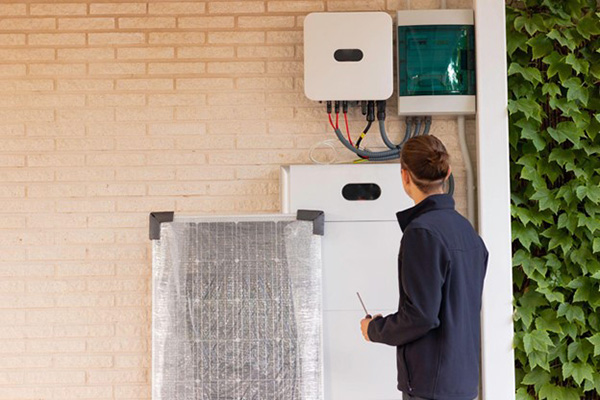
Can a generator be plugged into a wall outlet?
No. Back feeding must be avoided at all costs for a variety of reasons. For example, if you fail to activate the main circuit breaker, which electrically isolates the house from the grid, your generator may send power beyond the house and onto the grid.
Furthermore, if the earth leakage or main switch is left on when grid power is restored, it will damage your generator and may even cause electrical or other fires, among other dangerous hazards. Furthermore, if you choose to turn off the earth leakage main switch to avoid this problem, keep in mind that your family is at high risk of electrocution because the electrical system will not have any earth leakage protection.
What is the distinction between a standby and a backup generator?
A standby generator, like a central air conditioning system, is permanently installed equipment. Its engine is powered by propane or natural gas. A backup generator is a small, portable gasoline-powered generator that you can wheel around outside the house and connect to the transfer switch. Heavy-duty extension cords can be used to connect it to electrical loads.
Should I get a standby or portable generator? It is determined by your needs and budget. Portable generators are much less expensive than standby generators, and they have built-in outlets for connecting suitable extension cords if you haven’t installed a transfer switch. If you are looking for a low-cost option, a portable one should be your first choice. They can easily power the majority of your appliances, and unlike standby generators, they do not require additional installation fees.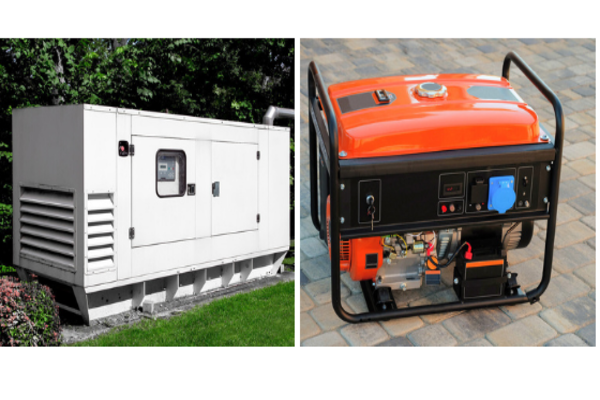 Can a generator be run in the garage as long as the door remains open?
Can a generator be run in the garage as long as the door remains open?
Never operate a generator inside a house, garage, carport, screened porch, or near an open window. Even with the garage door open, the carbon monoxide gas emitted by the generator can sicken or even kill someone inside the house.
Other safety precautions to consider when purchasing a generator
When using a generator, it’s a good idea to have CO detectors in the house. Keep the generator at least 5 metres away from the house to reduce CO risks as well as the possibility of the hot muffler melting the vinyl siding.
Is it necessary to turn off the generator to refuel?
Yes. Never fuel a generator while it is running or hot, as this poses a significant fire or explosion risk. Allow it to cool before refuelling it.
Are home generators audible?
It is determined by the amount of load handled by the generator. The greater the load, the greater the noise. However, there are many advanced generators that adjust engine rpm to their electrical output better than traditional or older generators. This reduces their running speed, making them quieter and saving fuel. Check the noise levels of the generator in (dBA) before purchasing one to get a much quieter option. Aside from that, silencers or mufflers are attached to the generator’s exhaust pipe, which helps to reduce noise.
Is it necessary to ground the generator?
Follow the instructions in the owner’s manual for this. If the manual instructs you to ground the generator, you can do so quite easily. One simple method is to connect a 12-gauge ground wire from the generator’s grounding terminal to a copper ground rod installed in the soil next to the generator. The generator includes a grounding terminal symbol to help you locate the terminal. As long as you follow the instructions in the manual, the generator will be safely grounded.
Here’s a quick checklist of things to think about when purchasing a generator:
Safety
Ensure that the generator is properly installed or connected to the building via a suitable and approved change-over switch, which includes a certified electrician installing an over-current protection circuit breaker in the main distribution board.
The total electrical load that will be connected
Voltage, frequency, and phase are all important considerations.
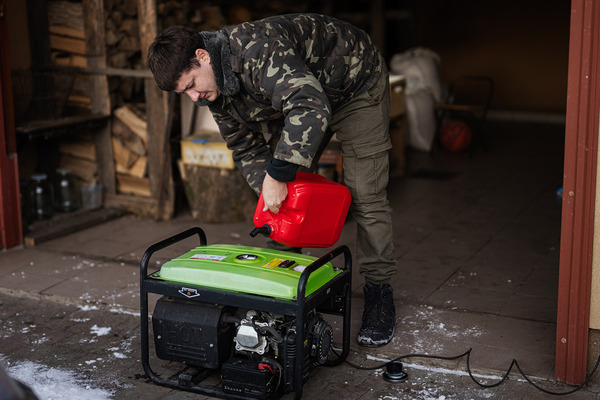
Do you want the generator to start on its own?
If this is the case, an automatic mains failure (AMF) mechanism must be installed. If not, a system for manual start and switch over must be installed.
A suitable location for the generator, such as outside or in a ventilated area.
Noise levels, altitude, and duration of operation
So those are the top factors to consider when purchasing a generator, according to our list. We hope this was of some assistance to you and made your task a little easier.

Leave a Comment